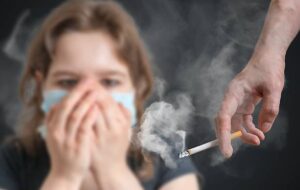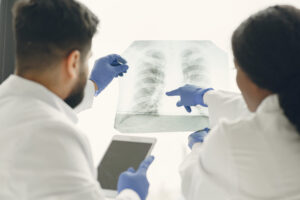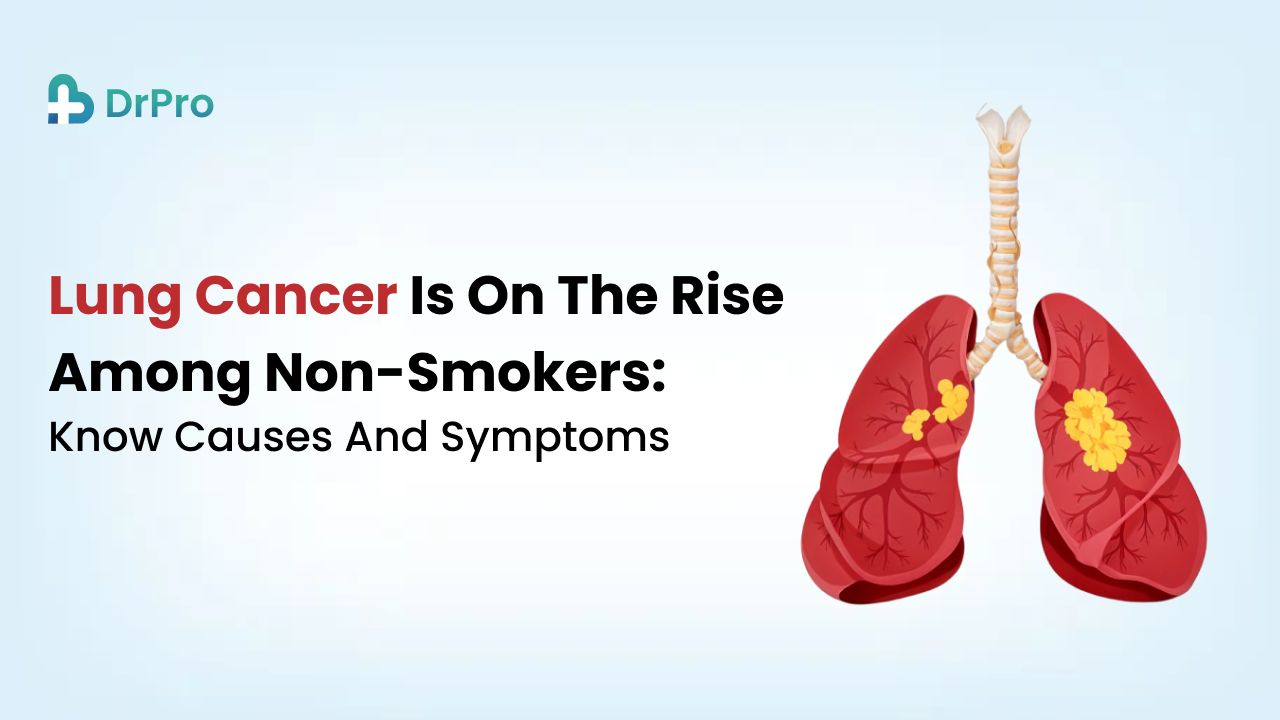Most often, lung cancer is associated with smoking, though many non-smokers are now diagnosed with the disease. The question is raised about what is hidden how lung cancer affects non-smokers differently. In this blog, we are going the differences, causes, symptoms, treatment options for lung cancer in non-smokers.
How Cancer in Non-Smokers Different from Smoker Cancer?
Lung cancer in non-smokers are different from cancer in smokers in several ways:
- There are many different types: the most common type of cancer in nonsmokers is adenocarcinoma. The most common type in smokers is small-cell lung cancer.
- Genetic mutation: lung cancers in non-smokers are genetic mutations from tobacco exposure.
- Different causes: The role of air pollution, secondhand harmful impact of smoke, and family history in causing cancer is greater in nonsmokers.
What Causes Lung Cancer in Non-Smokers?
The following contribute to lung cancer among nonsmokers:

- Secondhand smoke – Long-term exposure to other people’s smoke damages the lungs.
- Air pollution – Chronic exposure to dirty air raises the chance of developing lung diseases, which may be cancers.
- Radon gas – A natural, radioactive gas, this is one of the most common causes of cancer in people who have never smoked.
- Genetic mutations – Some people inherit gene changes that make them more likely to develop cancer.
- Workplace exposure – Contact with asbestos, chemicals, or heavy metals in certain jobs can increase the risk.
- Viruses and infections – Some infections can lead to long-term inflammation, which may increase risk.
What Are the Symptoms of Lung Cancer in Non-Smokers?
The symptoms of lung cancer in non-smokers are often mistaken for other illnesses. These include:
- A persistent cough that doesn’t go away.
- Shortness of breath, even with light activity.
- Chest pain or discomfort.
- Hoarseness or voice changes.
- Unexplained weight loss.
- Frequent lung infections, like pneumonia or bronchitis.
- Coughing up blood (in later stages).
Non-smokers brush off these symptoms, considering them cold allergies. when the symptoms continue for more a few weeks, a checkup with the doctor is needed.
What are the Treatments for Non-Smoker Lung Cancer?
Treatments are determined by the type and stage of cancer. The main treatments include following:
- Surgery – If diagnosed early, removes the tumor.
- Targeted therapy – Medications used to kill the cancer cells carrying specific genetic mutations (most cases of non-smokers).
- Immunotherapy – Assists the immune system in fighting the cancer.
- Radiation therapy– high energy rays to destroy the cancer.
- Chemotherapy– involves the use of drugs that destroy the cells of cancer, usually combined with other treatments.
The early detection ensures a better probability of treatment
How is Knowledge of Genetics Improving Treatment of Lung Cancer in Non-Smokers?

- Genetic research is shifting how cancer in nonsmokers is being treated:
- Genetic testing helps doctors identify specific mutations, EGFR, ALK, and ROS1, associated with cancer in non-smokers.
- Targeted therapies are developed to block these genetic changes, making treatments more effective.
- Precision medicine allows for personalized treatment plans based on a patient’s genetic profile.
New drugs and clinical trials are focusing on better treatment options for non-smoker cancer patients.
Understanding genetics provides people with better survival rates and fewer side effects for non-smokers who have cancer.
know more about this: Spot It Early: The Signs of Breast Cancer You Shouldn’t Ignore
Final Thought
Lung cancer in non-smokers is on the rise, and the causes of this cancer are not limited to smoking. Major risks include environmental factors, genetics, and air pollution. Early symptoms can be diagnosed through medical advice, allowing for early detection and treatment.
5 Common FAQs
Q1. Can a non-smoker get lung cancer?
Yes, a non-smoker can be a victim of cancer caused by air pollution, passive smoking, genetic mutations, and exposure to radon gas.
Q2. Is lung cancer in non-smokers less serious?
Not necessarily. Non-smokers are aggressive and respond better to targeted therapy.
Q3. How do non-smokers prevent cancer?
They can avoid exposure to air pollution, secondhand smoke, and radon gas. Regular health checkups aid in early detection.
Q4. What is the survival rate for non-smoker lung cancer?
Survival rates depend on the cancer stage and treatment. Non-smokers tend to respond better to targeted treatments, increasing the chances of survival.
Q5. Is lung cancer in non-smokers curable?
Cancer can be cured with early detection & proper treatment, this includes surgery-targeted therapy.

